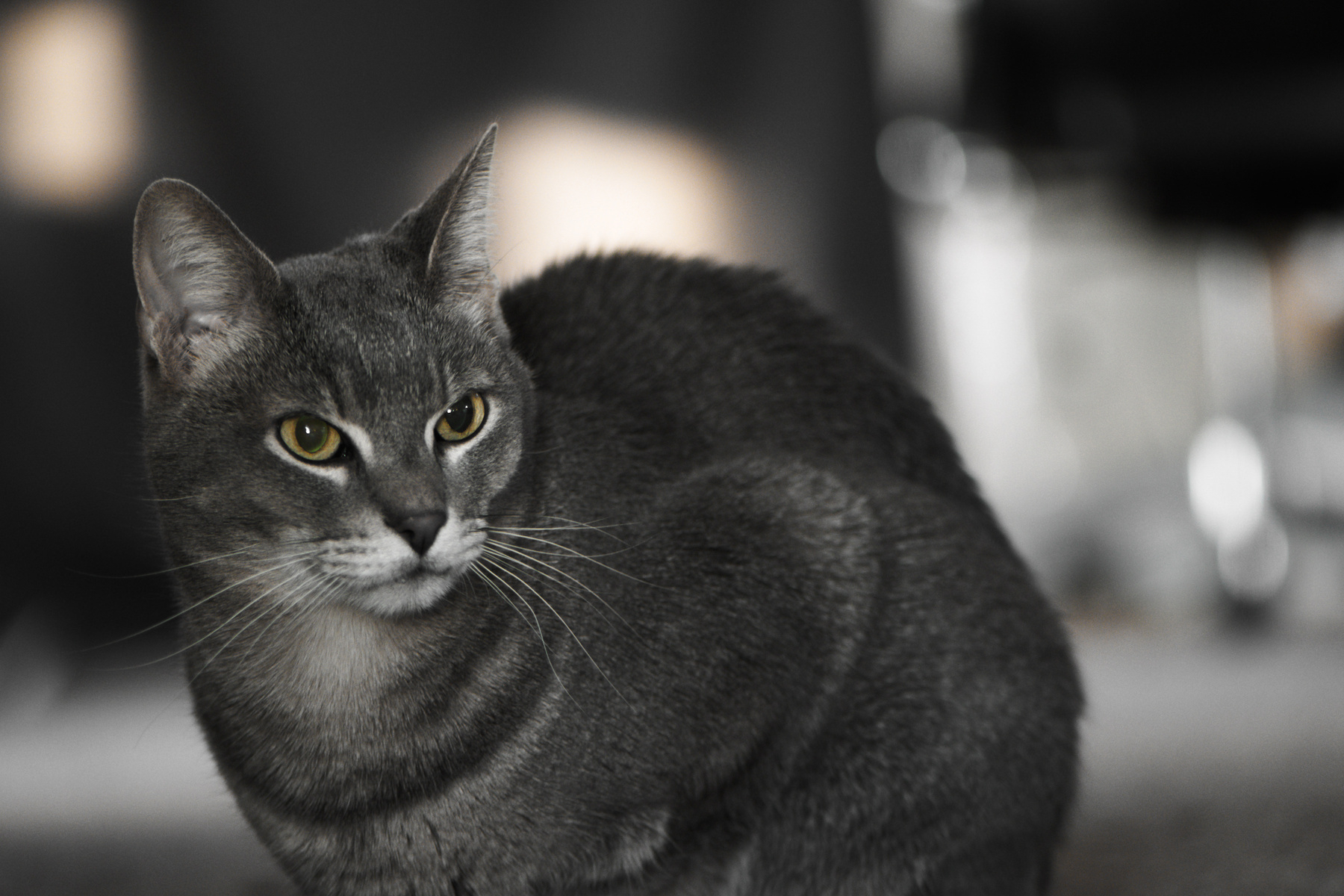The Shape of Cats
My brother Sam occasionally delivers the sermon at his church and yesterday he sent me the text of his latest: The Shape of a Dog. His family’s beloved dog Bingley sickened and died last year, suddenly and unexpectedly. His minister visited to console them for the ‘dog-shaped empty place’ in their lives, a phrase that gave form to grief.
I have cats, intermittently. They visit when their parents (my neighbors) are away. This is a far better arrangement than me going next door to feed them three times a day, for all concerned. I get to stay home, they get more attention, and, like grandchildren, they leave before anything serious has to be decided. We’ve done this enough times that the cats barely complain and take virtually no time to adjust.They seem perfectly happy to be here, but they do like to go home when their family returns. If they hear the car arrive, they will sit in the window and watch. When their folks walk over and the travel crates come out, they eagerly wait for the doors to open and then trot right in, a stunning sight that makes us humans laugh every time.
And they too leave a hole when they go. No harm has come to them, so there is no grief, but there are reflexes, expectations. I leave the water bowl out for days. I don’t leave loose papers around because Diego might chew on them. This includes toilet paper, which he loves to stream off the dispenser and shred. I turn the light on when I wake at night to make sure I don’t step on them. I leave a wing of my desk empty for them to visit.
And I keep closing doors quickly behind me. They are indoor cats, so they expect this with exterior portals, but I also do not allow them downstairs nor in certain closets. This remains a point of contention. Any opportunity for access is seized, quickly and silently. The result is that I squeeze through minimally opened doors for days after they leave.
They have trained me well.
